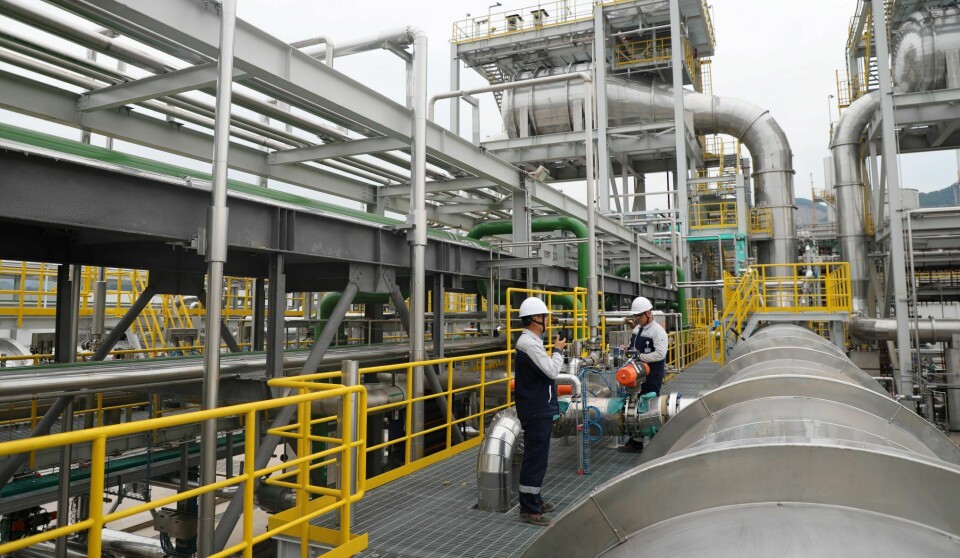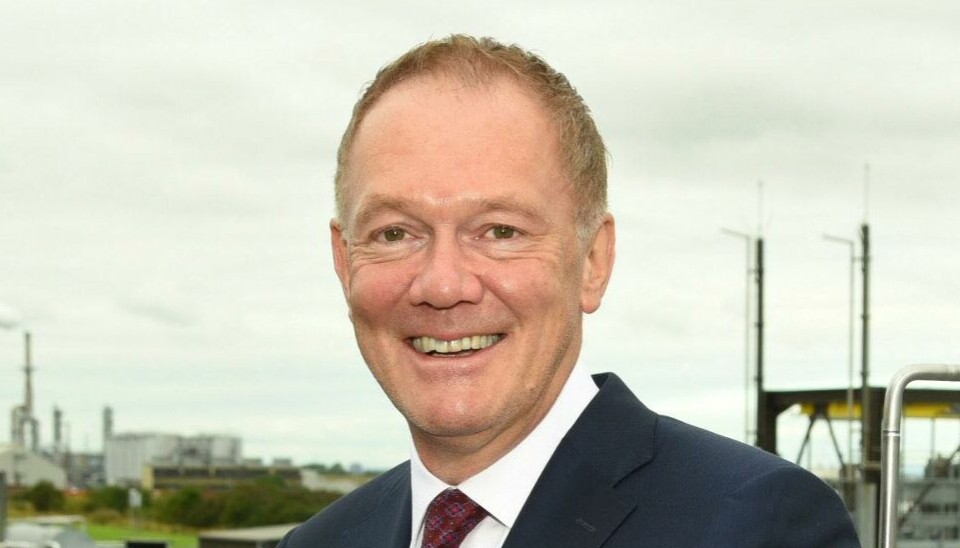
China gives green light for protein-from-gas ingredient in aquafeed
Approval is final step in bringing 'truly sustainable' FeedKind to Asian market, says Calysta boss
A protein made from microbes that feed on natural gas has received formal approval for use in aquaculture feeds in China, a huge aquafeed market.
The country’s Ministry of Agriculture and Rural Affairs (MARA) has formally given Calysta’s FeedKind single cell protein (SCP) full approval for use in fish and shrimp feeds after an extensive evaluation process.
The use of natural gas (methane) to ferment methane-loving bacteria into a protein source was pioneered by Norwegian state energy company Statoil, then bought and further developed and perfected at the Centre for Process Innovation (CPI) in Teesside, UK by Calysta.
FeedKind is manufactured in Chongqing, China, by Calysseo, a joint venture between US-based Calysta and China- headquartered international feed additive heavyweight Adisseo.
Food security
Calysseo’s chairman, Sun Bin, said: “This is an important step forward not just in helping make food production systems more sustainable but in improving global food security by providing feed producers with a domestically produced, reliable feed ingredient that isn’t susceptible to weather or climate-driven fluctuations in supply.”
FeedKind has been validated via extensive trials across aquaculture species including shrimp, seabass, and salmon.
Research previously demonstrated distinct benefits for shrimp, concluding that FeedKind promotes strong, healthy growth, while also helping activate shrimp’s immune response to vibrio, the causative agent of early mortality syndrome.
According to market research company IMARC Group, the China aquafeed market size reached 16.9 million tons in 2023 and is expected to reach 30.6 million tons by 2032.
Healthy and practical
Herman Hong, Adisseo aquaculture manager for China, said: “This is a significant step forward for the adoption and use of fermented proteins across global food systems. MARA approval is more than simply a regulatory step, it is validation that our product is a healthy and practical ingredient for use in aquaculture systems and opens the door for the Chinese aquaculture sector to set new standards in sustainable feed practices.”

FeedKind can be produced year-round using no arable land and without using any plant or animal ingredients, it truly is a protein without limits.
Calysta CEO Alan Shaw
Alan Shaw, co-founder and chief executive of Calysta said: “Approval from MARA is the final piece of the puzzle to bring a truly sustainable, high-quality source of protein to the Asian aquaculture market that offers superior nutrition to existing alternatives.
“FeedKind can be produced year-round using no arable land and without using any plant or animal ingredients, it truly is a protein without limits.”
20,000 tonnes
The plant in Chongqing began operating in October 2022 and has capacity to produce 20,000 tonnes of FeedKind per year.
Calysseo has also announced its intentions to expand its production footprint by 100,000 tonnes by establishing a facility in Al Jubail in Saudi Arabia. It is hoped the facility could become operational by the end of 2026, pending necessary construction and approvals.
Energy giant BP also envisages siting FeedKind plants at its oil and gas sites, and has invested in Calysta.
In February last year, FeedKind achieved Generally Recognised As Safe (GRAS) status with the United States Food and Drug Administration (FDA), allowing FeedKind to be used in salmonid feeds at up to 18% of the diet.






















































